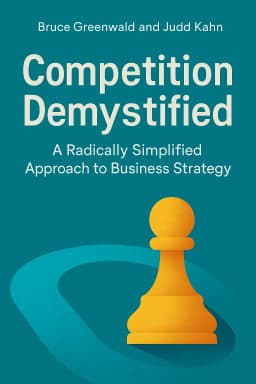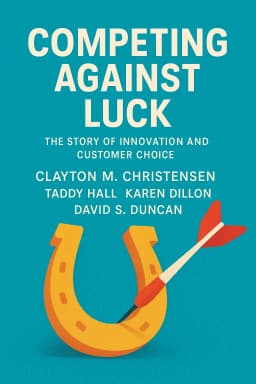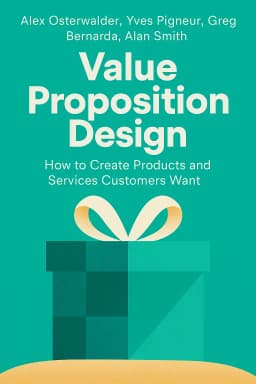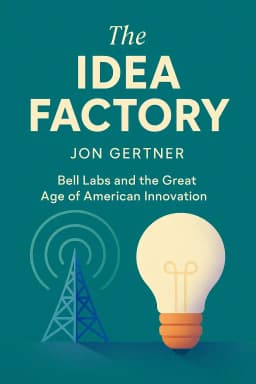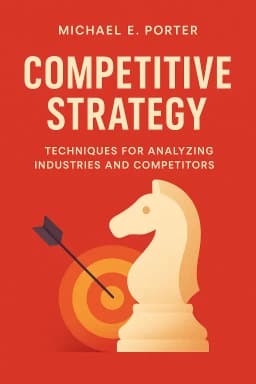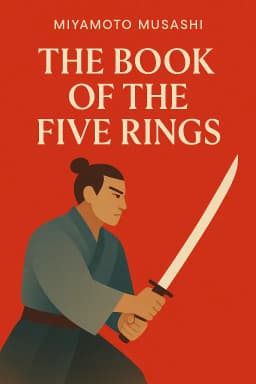
The Commander's Katana: Musashi's Strategy for Modern Product Leaders
Golden Hook & Introduction
SECTION
Alex: That's a powerful way to put it, Warren. And it's absolutely true. The 'grief' of a product that misses the mark is something that keeps leaders up at night. It's not just about the financial loss; it's about the team's morale, the lost opportunity. So, the idea that a 400-year-old text could hold a key to avoiding that... I'm intrigued.
Alex: The blueprint. The foundation. I like it.
Deep Dive into Core Topic 1: The Way of the Carpenter
SECTION
Alex: That's the central tension of the job, isn't it? You have to be a warrior in the market, but a craftsman with your product. Most people think they're mutually exclusive. It sounds like Musashi believed they were one and the same.
Alex: Okay, I'm already mapping this. The 'rules of the country' are market regulations, privacy laws like GDPR or FERPA in my education space. The 'rules of houses' are the principles of good software architecture. You violate them, and the whole thing collapses later.
Alex: That's the team. That's my engineering talent. 'Knowing the quality of timber' is a perfect description of skill assessment. You don't put a junior developer on a critical security feature, just like you don't use weak wood for a main beam. The 'visible pillars' are the UI/UX—the beautiful, polished features everyone sees. But the 'hidden supports'? That's the backend architecture, the database, the APIs. You neglect that stronger, less glamorous timber at your peril.
Alex: That's incredible. He's basically describing the role of a modern agile leader or a scrum master. It's not just about the project plan, the Gantt chart. It's about servant leadership. It's understanding the human element. You push your team, but you also have to know when they're near a breaking point. Musashi was an early agile coach, apparently.
Alex: That's the million-dollar question. A rigid blueprint can become a cage in a dynamic market. You can build the most perfect, beautiful house, but if an earthquake hits and you didn't plan for it, it's just rubble. So what was Musashi's answer for the earthquake?
Deep Dive into Core Topic 2: The Spirit of Water & Fire
SECTION
Alex: Water. Meaning fluid, adaptable?
Alex: I see. So it's not about having a 'war room' mentality only during a crisis. It's about cultivating a state of constant, calm readiness. In product terms, this is continuous discovery. It's being perpetually in touch with your users, your market, your data. You can't be rigid or fall in love with your own assumptions, because the market will tell you you're wrong. The 'water' mindset is being willing to let that feedback reshape your thinking without panicking.
Alex: Let's break those down. "Crossing at a ford"?
Alex: That is the essence of finding a market niche. It's not trying to out-feature a giant competitor on their home turf. It's finding that one critical user pain point that everyone else has ignored and building the perfect, elegant solution for it. That's your ford. You cross there, establish a beachhead with a core group of passionate users, and expand from there. It's a surgical strike.
Alex: Oh, I love that one. That's disruptive innovation. It's releasing a feature or a pricing model so unexpected that it makes your competitor's entire roadmap obsolete. They're left scrambling, trying to react, while you're already moving on to the next thing. You've seized the initiative. You're no longer playing their game; they're forced to play yours.
Alex: It's the only way to survive. With AI, the river is flooding. The old fords are gone. A rigid, carpenter-like plan from last year is useless. You have to have the 'Water' spirit to constantly scan the new landscape, to see where the new channels are forming. What new student or teacher problems can be solved now that weren't possible six months ago? That's finding the new ford. And the 'Fire' is the speed of execution. You can't have a two-year roadmap for an AI feature. You have to build, test, and launch in weeks or months. You have to strike with fire, learn, and strike again.
Synthesis & Takeaways
SECTION
Alex: The blueprint.
Alex: You need both. It's the structure and the spirit. And it's interesting, Warren, that Musashi's final, shortest chapter is called 'The Book of the Void.' He says the void is a state where "the clouds of bewilderment clear away."
Alex: Exactly. For a product leader today, that void is achieved by clearing away the noise—the vanity metrics, the internal politics, the feature requests that don't align with the vision. It's about seeing the simple, unvarnished truth of your user and your market. And I think that leads to the ultimate challenge Musashi gives us. In the Fire Book, he talks about achieving a "Body of a Rock"—a state where your strategy is so sound, so well-executed, that you become unmovable. Ten thousand things can't touch you.
Alex: It is. So I think the question for every leader, every strategist listening, is this: When you look at your product, your company, your career... is your strategy a rock, or is it just sand waiting for the next tide?
Alex: The pleasure was all mine, Warren. Thank you.
